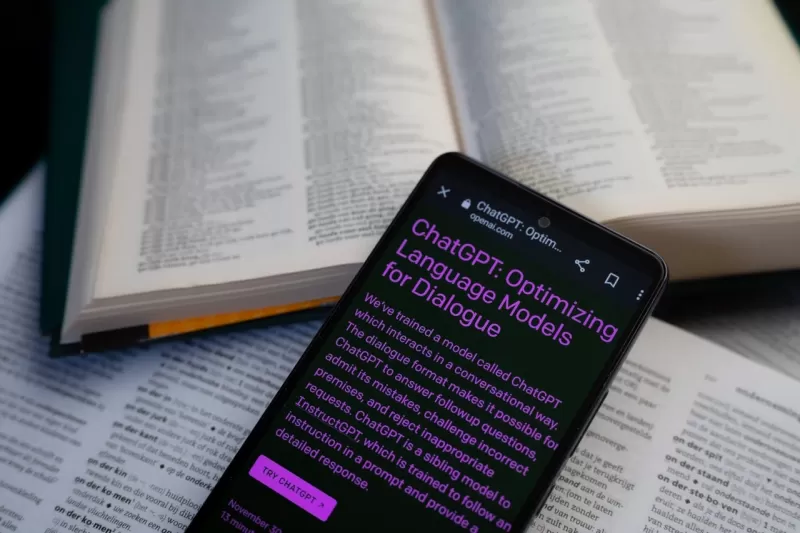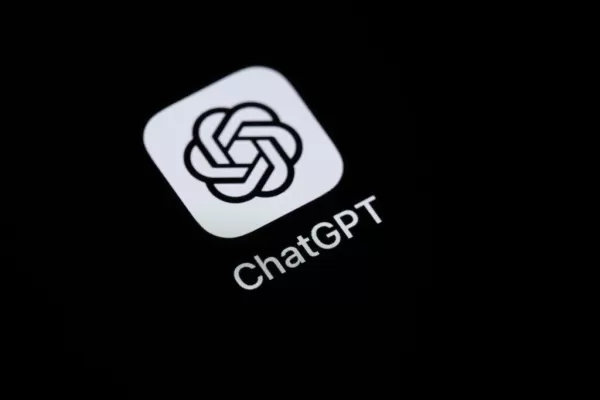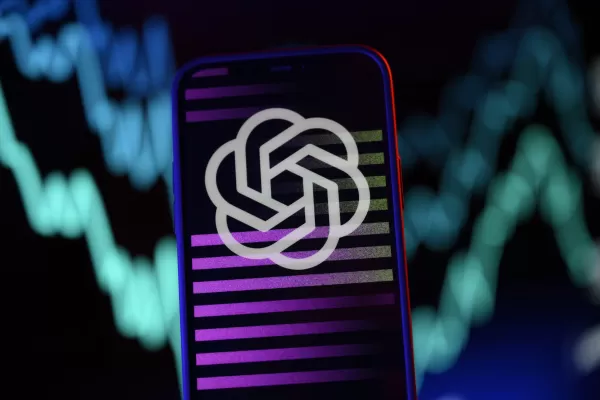Improve ChatGPT's Source and Citation Quality with These Tips

When it comes to using ChatGPT, one common frustration users face is the difficulty in verifying the accuracy of the information provided. This stems from the fact that ChatGPT often doesn't include sources, footnotes, or links in its responses. Let's explore how you can encourage ChatGPT to provide sources and citations, making your research more reliable and thorough.
Start with a Query and Ask ChatGPT
Begin by asking ChatGPT a question that would naturally require sources or citations. It's often more effective to pose a question that requires a detailed answer. This gives ChatGPT more to work with and increases the likelihood of getting useful information back.
Remember, ChatGPT's knowledge is limited to information up to January 2022 for GPT-3.5, April 2023 for GPT-4, and October 2023 for GPT-4o. So, if you're researching a topic from before the internet era, like Ronald Reagan's presidency, expect fewer available sources.
Here's an example of a prompt that I used when researching learning theories during my graduate studies:
Describe the learning theories of cognitivism, behaviorism, and constructivism
Request Sources from ChatGPT
After receiving your initial response, you can refine your query to request sources. A simple prompt like this can help:
Please provide sources for the previous answer
This often results in offline sources like books or papers, which can be a good starting point but can't be easily verified online. For online sources, try this:
Please provide URL sources
You can also specify the number of sources you need:
Please provide 10 URL sources
Enhance the Quality of Sources
Detail and specificity can significantly improve the quality of sources you receive. Make it clear that you're looking for reliable and accurate information. You might say:
Please provide me with reputable sources to support my argument on... (insert your topic here)
If you need specific types of sources, such as scholarly articles or peer-reviewed journals, mention that explicitly:
Please recommend peer-reviewed journals that discuss... (repeat your earlier topic)
For more abstract concepts, ask for a conceptual framework and real-world examples:
Can you describe the principles of Vygotsky's Social Development Theory and provide real-world examples where these principles were applied, including sources for these examples?
Be cautious with requests for recent sources due to ChatGPT's knowledge cutoff dates. Instead of asking for sources from the past five years, you might request:
Please provide sources published from 2019 through April 2023
Always remember that ChatGPT's responses can be inaccurate or fabricated, even down to inventing names of academic journals. Treat it as a helpful tool, but not a definitive source of truth.
Verify and Validate the Provided Sources
It's crucial to approach ChatGPT-provided sources with skepticism. In my experience, about half of the URL sources provided are incorrect, and a quarter are unrelated to the topic. Even with GPT-4 and GPT-4o, the accuracy doesn't improve significantly.
For instance, when I asked for sources on the phrase "trust but verify," associated with Ronald Reagan, many links were broken, and others led to unrelated pages on the Reagan Presidential Library site.
However, don't get discouraged. Use ChatGPT as a research assistant rather than a source provider. The names of articles or authors it mentions can serve as useful search terms on Google, leading you to relevant and verifiable material.
Remember, you're not limited to ChatGPT. Utilize other research tools, such as Google Scholar and JSTOR, for academically credible sources. And don't hesitate to consult primary sources or subject-matter experts, including your school's librarian if you're a student.
Finally, avoid simply copying and pasting ChatGPT's sources into your work. That's a shortcut to plagiarism. Instead, use the AI's responses as starting points for deeper research.
FAQ
Will different ChatGPT LLMs provide different results?
Yes, the performance varies across different versions of ChatGPT:
- GPT-3.5: This older model doesn't provide citations or verify sources, often fabricating information.
- GPT-4: A slightly more advanced version, it still struggles with source accuracy and doesn't provide URLs unless prompted.
- GPT-4o: The current standard, it offers improved citations and more accurate URLs. The free version has limited computing resources, resulting in less detailed sources, while the paid version ($20/month) includes web searching for sources post-October 2023.
- GPT-o1: Known for deeper conceptual processing, it doesn't necessarily provide better sources or citations due to the same data limitations as GPT-4o.
How do you put sources in APA format?
APA format, used widely in academic settings, is detailed on the Purdue OWL website. While online formatters can help, they're not always comprehensive. It's best to manually format your citations to ensure accuracy.
How can I make ChatGPT provide more reliable sources for its responses?
Sometimes, re-asking for sources or specifying that previous ones were incorrect can prompt ChatGPT to offer better options. It might apologize and try again. Rephrasing your original question can also lead to different, potentially more accurate, sources.
Remember, using ChatGPT as a writing assistant rather than a source generator helps avoid plagiarism. Use its responses as clues for further research.
Why are ChatGPT sources often so wrong?
Link rot can cause some issues, as many sources are over three years old. Additionally, since ChatGPT was trained largely without human supervision, its sources may be unverified, incorrect, or non-existent. Always approach its suggestions with a "trust but verify" mindset.
Related article
 Mastercard’s Agent Pay Enhances AI Search with Seamless Transactions
Traditional search platforms and AI agents often require users to switch windows to complete purchases after finding products or services.Mastercard is revolutionizing this process by embedding its pa
Mastercard’s Agent Pay Enhances AI Search with Seamless Transactions
Traditional search platforms and AI agents often require users to switch windows to complete purchases after finding products or services.Mastercard is revolutionizing this process by embedding its pa
 OpenAI Commits to Fixes After ChatGPT's Overly Agreeable Responses
OpenAI plans to revise its AI model update process for ChatGPT after an update caused excessively sycophantic responses, prompting widespread user feedback.Last weekend, following an update to GPT-4o,
OpenAI Commits to Fixes After ChatGPT's Overly Agreeable Responses
OpenAI plans to revise its AI model update process for ChatGPT after an update caused excessively sycophantic responses, prompting widespread user feedback.Last weekend, following an update to GPT-4o,
 OpenAI Unveils Advanced AI Reasoning Models, o3 and o4-mini
OpenAI introduced o3 and o4-mini on Wednesday, new AI models engineered to pause and analyze questions before answering.OpenAI touts o3 as its most sophisticated reasoning model yet, surpassing prior
Comments (19)
0/200
OpenAI Unveils Advanced AI Reasoning Models, o3 and o4-mini
OpenAI introduced o3 and o4-mini on Wednesday, new AI models engineered to pause and analyze questions before answering.OpenAI touts o3 as its most sophisticated reasoning model yet, surpassing prior
Comments (19)
0/200
![BillyThomas]() BillyThomas
BillyThomas
 September 12, 2025 at 8:30:41 PM EDT
September 12, 2025 at 8:30:41 PM EDT
¡Finalmente alguien habla de este problema! 😅 Siempre me frustra cuando ChatGPT da datos interesantes pero sin fuentes... ¿Cómo voy a saber si es información real o inventada? Estos consejos parecen útiles, aunque espero que OpenAI mejore esto directamente en el modelo pronto.


 0
0
![RyanSanchez]() RyanSanchez
RyanSanchez
 August 13, 2025 at 11:01:00 PM EDT
August 13, 2025 at 11:01:00 PM EDT
This article is super helpful! I always wondered how to make ChatGPT give better sources. Gonna try these tips next time I use it 😄


 0
0
![StephenGonzalez]() StephenGonzalez
StephenGonzalez
 August 10, 2025 at 5:01:00 AM EDT
August 10, 2025 at 5:01:00 AM EDT
Super helpful tips for making ChatGPT more reliable! I’ve been annoyed by its vague answers before, so I’m definitely trying these to get better citations. 😄


 0
0
![JohnAllen]() JohnAllen
JohnAllen
 July 27, 2025 at 9:19:30 PM EDT
July 27, 2025 at 9:19:30 PM EDT
This article is a game-changer! I’ve been annoyed by ChatGPT’s vague answers, and these tips for better citations sound super practical. Gonna try them out and see if I can finally trust its info more. 🧠


 0
0
![RalphGarcia]() RalphGarcia
RalphGarcia
 April 25, 2025 at 1:27:21 AM EDT
April 25, 2025 at 1:27:21 AM EDT
ChatGPTがソースを示さないのは本当に頭痛の種!でも、これらのヒントはゲームチェンジャーだね!今なら提供される情報を信頼できるよ。ただ、もう少し簡単に実装できればいいのに。🤓 ChatGPT、改良を続けてね!


 0
0
![AvaHill]() AvaHill
AvaHill
 April 24, 2025 at 9:27:23 PM EDT
April 24, 2025 at 9:27:23 PM EDT
¡La falta de fuentes en ChatGPT es un verdadero dolor de cabeza! Pero estos consejos son un cambio de juego. Ahora puedo confiar realmente en la información que proporciona. Solo desearía que fuera un poco más sencillo de implementar. 🤓 ¡Sigue mejorando, ChatGPT!


 0
0

When it comes to using ChatGPT, one common frustration users face is the difficulty in verifying the accuracy of the information provided. This stems from the fact that ChatGPT often doesn't include sources, footnotes, or links in its responses. Let's explore how you can encourage ChatGPT to provide sources and citations, making your research more reliable and thorough.
Start with a Query and Ask ChatGPT
Begin by asking ChatGPT a question that would naturally require sources or citations. It's often more effective to pose a question that requires a detailed answer. This gives ChatGPT more to work with and increases the likelihood of getting useful information back.
Remember, ChatGPT's knowledge is limited to information up to January 2022 for GPT-3.5, April 2023 for GPT-4, and October 2023 for GPT-4o. So, if you're researching a topic from before the internet era, like Ronald Reagan's presidency, expect fewer available sources.
Here's an example of a prompt that I used when researching learning theories during my graduate studies:
Describe the learning theories of cognitivism, behaviorism, and constructivism
Request Sources from ChatGPT
After receiving your initial response, you can refine your query to request sources. A simple prompt like this can help:
Please provide sources for the previous answer
This often results in offline sources like books or papers, which can be a good starting point but can't be easily verified online. For online sources, try this:
Please provide URL sources
You can also specify the number of sources you need:
Please provide 10 URL sources
Enhance the Quality of Sources
Detail and specificity can significantly improve the quality of sources you receive. Make it clear that you're looking for reliable and accurate information. You might say:
Please provide me with reputable sources to support my argument on... (insert your topic here)
If you need specific types of sources, such as scholarly articles or peer-reviewed journals, mention that explicitly:
Please recommend peer-reviewed journals that discuss... (repeat your earlier topic)
For more abstract concepts, ask for a conceptual framework and real-world examples:
Can you describe the principles of Vygotsky's Social Development Theory and provide real-world examples where these principles were applied, including sources for these examples?
Be cautious with requests for recent sources due to ChatGPT's knowledge cutoff dates. Instead of asking for sources from the past five years, you might request:
Please provide sources published from 2019 through April 2023
Always remember that ChatGPT's responses can be inaccurate or fabricated, even down to inventing names of academic journals. Treat it as a helpful tool, but not a definitive source of truth.
Verify and Validate the Provided Sources
It's crucial to approach ChatGPT-provided sources with skepticism. In my experience, about half of the URL sources provided are incorrect, and a quarter are unrelated to the topic. Even with GPT-4 and GPT-4o, the accuracy doesn't improve significantly.
For instance, when I asked for sources on the phrase "trust but verify," associated with Ronald Reagan, many links were broken, and others led to unrelated pages on the Reagan Presidential Library site.
However, don't get discouraged. Use ChatGPT as a research assistant rather than a source provider. The names of articles or authors it mentions can serve as useful search terms on Google, leading you to relevant and verifiable material.
Remember, you're not limited to ChatGPT. Utilize other research tools, such as Google Scholar and JSTOR, for academically credible sources. And don't hesitate to consult primary sources or subject-matter experts, including your school's librarian if you're a student.
Finally, avoid simply copying and pasting ChatGPT's sources into your work. That's a shortcut to plagiarism. Instead, use the AI's responses as starting points for deeper research.
FAQ
Will different ChatGPT LLMs provide different results?
Yes, the performance varies across different versions of ChatGPT:
- GPT-3.5: This older model doesn't provide citations or verify sources, often fabricating information.
- GPT-4: A slightly more advanced version, it still struggles with source accuracy and doesn't provide URLs unless prompted.
- GPT-4o: The current standard, it offers improved citations and more accurate URLs. The free version has limited computing resources, resulting in less detailed sources, while the paid version ($20/month) includes web searching for sources post-October 2023.
- GPT-o1: Known for deeper conceptual processing, it doesn't necessarily provide better sources or citations due to the same data limitations as GPT-4o.
How do you put sources in APA format?
APA format, used widely in academic settings, is detailed on the Purdue OWL website. While online formatters can help, they're not always comprehensive. It's best to manually format your citations to ensure accuracy.
How can I make ChatGPT provide more reliable sources for its responses?
Sometimes, re-asking for sources or specifying that previous ones were incorrect can prompt ChatGPT to offer better options. It might apologize and try again. Rephrasing your original question can also lead to different, potentially more accurate, sources.
Remember, using ChatGPT as a writing assistant rather than a source generator helps avoid plagiarism. Use its responses as clues for further research.
Why are ChatGPT sources often so wrong?
Link rot can cause some issues, as many sources are over three years old. Additionally, since ChatGPT was trained largely without human supervision, its sources may be unverified, incorrect, or non-existent. Always approach its suggestions with a "trust but verify" mindset.
 Mastercard’s Agent Pay Enhances AI Search with Seamless Transactions
Traditional search platforms and AI agents often require users to switch windows to complete purchases after finding products or services.Mastercard is revolutionizing this process by embedding its pa
Mastercard’s Agent Pay Enhances AI Search with Seamless Transactions
Traditional search platforms and AI agents often require users to switch windows to complete purchases after finding products or services.Mastercard is revolutionizing this process by embedding its pa
 OpenAI Commits to Fixes After ChatGPT's Overly Agreeable Responses
OpenAI plans to revise its AI model update process for ChatGPT after an update caused excessively sycophantic responses, prompting widespread user feedback.Last weekend, following an update to GPT-4o,
OpenAI Commits to Fixes After ChatGPT's Overly Agreeable Responses
OpenAI plans to revise its AI model update process for ChatGPT after an update caused excessively sycophantic responses, prompting widespread user feedback.Last weekend, following an update to GPT-4o,
 OpenAI Unveils Advanced AI Reasoning Models, o3 and o4-mini
OpenAI introduced o3 and o4-mini on Wednesday, new AI models engineered to pause and analyze questions before answering.OpenAI touts o3 as its most sophisticated reasoning model yet, surpassing prior
OpenAI Unveils Advanced AI Reasoning Models, o3 and o4-mini
OpenAI introduced o3 and o4-mini on Wednesday, new AI models engineered to pause and analyze questions before answering.OpenAI touts o3 as its most sophisticated reasoning model yet, surpassing prior
 September 12, 2025 at 8:30:41 PM EDT
September 12, 2025 at 8:30:41 PM EDT
¡Finalmente alguien habla de este problema! 😅 Siempre me frustra cuando ChatGPT da datos interesantes pero sin fuentes... ¿Cómo voy a saber si es información real o inventada? Estos consejos parecen útiles, aunque espero que OpenAI mejore esto directamente en el modelo pronto.


 0
0
 August 13, 2025 at 11:01:00 PM EDT
August 13, 2025 at 11:01:00 PM EDT
This article is super helpful! I always wondered how to make ChatGPT give better sources. Gonna try these tips next time I use it 😄


 0
0
 August 10, 2025 at 5:01:00 AM EDT
August 10, 2025 at 5:01:00 AM EDT
Super helpful tips for making ChatGPT more reliable! I’ve been annoyed by its vague answers before, so I’m definitely trying these to get better citations. 😄


 0
0
 July 27, 2025 at 9:19:30 PM EDT
July 27, 2025 at 9:19:30 PM EDT
This article is a game-changer! I’ve been annoyed by ChatGPT’s vague answers, and these tips for better citations sound super practical. Gonna try them out and see if I can finally trust its info more. 🧠


 0
0
 April 25, 2025 at 1:27:21 AM EDT
April 25, 2025 at 1:27:21 AM EDT
ChatGPTがソースを示さないのは本当に頭痛の種!でも、これらのヒントはゲームチェンジャーだね!今なら提供される情報を信頼できるよ。ただ、もう少し簡単に実装できればいいのに。🤓 ChatGPT、改良を続けてね!


 0
0
 April 24, 2025 at 9:27:23 PM EDT
April 24, 2025 at 9:27:23 PM EDT
¡La falta de fuentes en ChatGPT es un verdadero dolor de cabeza! Pero estos consejos son un cambio de juego. Ahora puedo confiar realmente en la información que proporciona. Solo desearía que fuera un poco más sencillo de implementar. 🤓 ¡Sigue mejorando, ChatGPT!


 0
0





























